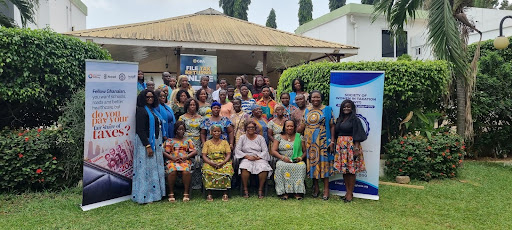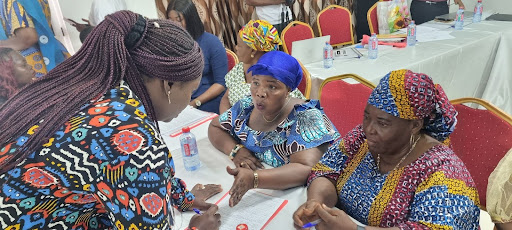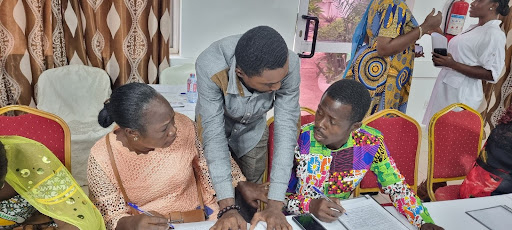For many informal sector workers, tax compliance is a puzzle wrapped in confusion. Making up about 80% of the country’s workforce, market women, artisans, and small business owners contribute immensely to Ghana’s economy, yet a considerable portion struggle with a tax system that seems opaque to them and often feels more like a burden than a shared responsibility. While fair taxation ensures that everyone pays their share and public services are adequately funded, the reality for many in the informal sector is a frustrating mix of complex regulations, seemingly inconsistent demands, and a lack of clear information.

At a recent tax stakeholder dialogue organized by BudgIT Ghana in collaboration with the Society for Women in Taxation (SWIT) and the International Budget Partnership (IBP), informal sector workers, especially women from some of the biggest markets across the country, gathered with tax experts and educators from government and civil society to unravel these challenges and find a path toward fair and transparent taxation. Among them were Auntie Connie and Odartey Lamptey, two experienced traders whose voices echoed the concerns and experiences of many.
Auntie Connie’s Journey From Confusion to Clarity

Auntie Connie has been running a successful vegetable shop at Accra’s Kaneshie Market for over two decades, yet as far taxes were concerned, she had always been in the dark.
“I pay taxes and levies every week, but I’m not sure what they cover. “Every now and then, someone comes to collect money, and if you don’t pay, your stall is locked,” she explained, sharing her frustrations. Her experience highlights a bigger issue: many informal sector workers make these financial contributions but have little to no understanding of how their money is spent or whether they are even paying the correct amount.
At the dialogue, experts broke down taxation in simple terms, covering topics like tax reliefs, refunds, and the importance of record-keeping. For the first time, Auntie Connie understood that taxation is not just about payment but about ensuring fairness and accountability. “I thought taxes were just another way to take our money, but now I see that if done right, they help us too,” she admitted.
Odartey Lamptey’s Wake-up Call

Odartey Lamptey, a market leader and father of three very illustrious children, has always prioritised stability for his family. Yet, despite years of running a successful small meat and textile business, he never knew that filing taxes could benefit him beyond avoiding penalties.
“Nobody ever told me that tax compliance could actually help me,” he said, shaking his head. “I just learned that proper tax records make things like getting travel visas or loans easier. I had no idea tax refunds even existed!”
Like many others, Lamptey had assumed taxes were a one-way street; money out, with no benefits in return. The discussion on modified taxation and tax reliefs was a revelation. “Now I see why I need to keep records and file properly. This isn’t just about paying the government; it’s about making the system work fairly for all of us,” he concluded.
How Can Fair Taxes Translate into Stronger Communities?

Connie and Lamptey’s stories highlight a crucial reality: when people don’t understand taxation, compliance suffers, and fairness becomes an illusion. If informal workers are expected to pay their fair share, the government must ensure clarity, education, ease of process, transparency, and accountability. With the right education, support, and policies, informal workers can shift from uncertainty to empowerment, ensuring that their contributions to the economy translate into tangible benefits.
BudgIT Ghana’s meeting was more than just a learning session; it was a call to action. For tax systems to be equitable and efficient, citizens need to know not only what they owe, but also what they are owed. Ensuring that informal sector workers understand that paying taxes is not only a step towards socio-economic equity among the Ghanaian as well as an investment of trust between the people and the government, but also a matter of economic necessity.
Everyone benefits when fairness and transparency are given priority, so tax compliance should not feel like a punishment but rather like a partnership. Auntie Connie put it best when she said, “I leave here today with confidence. Now when they come to collect taxes, I will know what to ask in return.”
